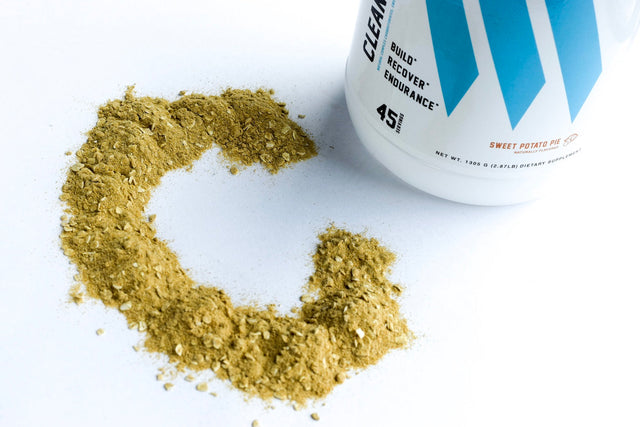Welcome to the ultimate guide on how to create an effective bodybuilding eating plan. In this comprehensive article, we will delve into the key components and strategies for fueling your muscles, optimizing performance, and achieving your bodybuilding goals.
Whether you're a beginner looking to gain muscle mass or an experienced lifter aiming to sculpt the perfect physique, nutrition plays a crucial role in your fitness journey. Without a proper eating plan, all the hours you spend in the gym may be in vain.
But fear not – we're here to guide you step-by-step in crafting an eating plan that suits your individual needs and goals. From determining your caloric needs to selecting the right macronutrient ratios and timing your meals strategically, we will walk you through each aspect of creating a meal plan that fuels your body effectively.
Additionally, we will address common concerns such as meal preparation, supplementation, and staying consistent with your nutrition. With our expert advice and practical tips, you'll be armed with the knowledge and tools to optimize your nutrition and maximize your gains.
So, let's get started on your journey towards building a strong, muscular physique through a well-structured bodybuilding eating plan.
Understanding the Importance of Nutrition in Bodybuilding
Why Nutrition Is the Foundation of Muscle Growth
Nutrition is often regarded as the backbone of any successful bodybuilding regime. While consistent training and dedication in the gym are crucial elements for building muscle, the food you consume plays a pivotal role in supporting your body’s recovery and growth. Fueling your muscles with the right nutrients can enhance performance and significantly influence the results you achieve. When you prioritize nutrition, you not only optimize your workouts but also ensure that your body is equipped to handle the demands of intense training sessions.
Proper nutrition aids in muscle repair and growth, which is essential for bodybuilders. After an intense workout, your muscles experience micro-tears that need to be repaired for muscle hypertrophy to occur. This is where macronutrients, particularly protein, come into play. Adequate intake of protein provides the amino acids necessary for muscle repair, while carbohydrates replenish glycogen stores to restore energy levels, enabling you to perform at your best in subsequent workouts. Without a focused eating plan, you may miss out on these vital recovery processes, hindering your progress.
Moreover, understanding how nutrition impacts your overall health cannot be overlooked. A well-balanced diet rich in vitamins and minerals supports your immune system, reduces the risk of injury, and promotes optimal bodily functions. As a bodybuilder, you put your body under significant stress, and proper nutrition becomes essential for maintaining overall well-being. By prioritizing a well-rounded eating plan, you not only enhance your physical performance but also lay the groundwork for longevity in your bodybuilding journey.
✅ Get a Personalized Nutrition Plan at The Swole Kitchen to support your goals with expert guidance and tailored strategies.
The Key Components of an Effective Bodybuilding Eating Plan
Macronutrients: The Fuel Behind Your Gains
An effective bodybuilding eating plan consists of several key components that work synergistically to promote muscle growth and recovery. The first component is macronutrients, which include carbohydrates, proteins, and fats. Each plays a unique role in your diet; proteins are crucial for muscle repair, carbohydrates provide the energy required for workouts, and healthy fats support hormonal balance and overall health. Balancing these macronutrients according to your individual needs is fundamental to creating a successful eating plan.
Scientific research consistently supports the importance of protein for muscle synthesis. According to Phillips & Van Loon (2011) in The Journal of Sports Sciences, dietary protein provides essential amino acids that act as building blocks for muscle tissue (Phillips & Van Loon, 2011).
Micronutrients: Small but Mighty
In addition to macronutrients, micronutrients—vitamins and minerals—are equally important. These nutrients support various bodily functions, including immune health, energy production, and muscle contractions. Incorporating a variety of fruits and vegetables into your meals ensures you receive a broad spectrum of micronutrients that can enhance your overall health and performance. A diverse diet rich in micronutrients not only aids in recovery but also helps prevent deficiencies that could impair your training and results.
For instance, Vitamin D, magnesium, and zinc are known to support testosterone production, which is vital for muscle growth (Nissen et al., Nutrients, 2022) (Nissen et al., 2022).
Meal Timing and Frequency: Optimizing Recovery and Performance
Another critical component is meal timing and frequency. For bodybuilders, strategically timing your meals can optimize nutrient absorption and energy levels. Consuming protein and carbohydrates around your workout can enhance recovery and muscle synthesis. Additionally, spreading your meals throughout the day helps maintain steady energy levels and prevents the feeling of extreme hunger, which can lead to poor food choices.
Evidence suggests that consuming protein within a few hours post-workout can significantly increase muscle protein synthesis (Schoenfeld et al., Journal of the International Society of Sports Nutrition, 2013) (Schoenfeld et al., 2013).
Calculating Your Macronutrient Needs for Bodybuilding
Step 1: Estimate Your Caloric Needs
Determining your macronutrient needs is a crucial step in crafting a personalized bodybuilding eating plan. The first step is to establish your daily caloric needs, which can be calculated using your Basal Metabolic Rate (BMR) and activity level.
Use a trusted tool like the Mifflin-St Jeor BMR Calculator to estimate your BMR based on your age, gender, weight, and height. Then, multiply that number by an activity factor to find your Total Daily Energy Expenditure (TDEE).
Step 2: Set Your Goals and Macronutrient Ratios
Once you have your TDEE, set your caloric target based on your goal:
-
Muscle gain = caloric surplus
-
Fat loss = caloric deficit
-
Maintenance = match TDEE
The general recommendation for bodybuilding macronutrient distribution is roughly:
-
40% carbohydrates
-
30% protein
-
30% fats
However, individual factors like body type, training intensity, and personal tolerance should influence your final ratios. Protein intake is especially crucial; most athletes aim for 1.2 to 2.2 grams of protein per kilogram of body weight, depending on their training volume and goals (Morton et al., 2018, Nutrition Reviews).
🎯 GET YOUR MACROS CALCULATED FOR FREE WITH THIS MACRO CALCULATOR
Designing a Meal Plan Based on Your Goals and Body Type
Tailoring Nutrition to Your Body Type
Creating a meal plan tailored to your unique goals and body type is essential for effective bodybuilding nutrition. Whether your objective is to gain muscle, lose fat, or maintain your current physique, the composition and timing of your meals play a significant role in your success.
Start by identifying your body type:
-
Ectomorphs: Fast metabolism; require higher calories to gain mass
-
Mesomorphs: Naturally muscular; respond well to balanced macronutrient intake
-
Endomorphs: Slower metabolism; benefit from controlled carb intake and clean fats
Aligning Meals With Your Goals
Next, define your primary goal:
-
Muscle Gain: Focus on a caloric surplus, high-quality protein, complex carbs, and healthy fats
-
Fat Loss: Maintain a caloric deficit with high protein, moderate carbs, and healthy fats
-
Maintenance: Stick close to TDEE and adjust based on training demands
Ensure every meal is nutrient-dense and supports your recovery and training output. Sources like lean meats, legumes, whole grains, avocados, olive oil, and colorful veggies should dominate your plate.
Frequency, Timing, and Practical Habits
Aim for 4–6 smaller meals per day to maintain energy and prevent excessive hunger. Prioritize pre- and post-workout meals that include fast-digesting carbs and lean proteins to support muscle synthesis and glycogen replenishment.
Meal prepping and planning ahead can significantly improve consistency—one of the most overlooked elements of success in bodybuilding nutrition. According to a study published in The International Journal of Behavioral Nutrition and Physical Activity, consistent meal planning is associated with a healthier diet and improved adherence to dietary goals (Lachat et al., 2016).
Want expert help designing your meal plan?
📩 Book a free consultation with a coach at The Swole Kitchen to align your training and nutrition perfectly.
Meal Prepping and Portion Control for Bodybuilding Success
Build Consistency Through Meal Prep
Meal prepping and portion control are vital strategies for maintaining consistency and discipline in your bodybuilding eating plan. Preparing meals in advance allows you to control the quality and quantity of food you consume, making it easier to stick to your nutritional goals. By dedicating a specific day each week to meal prep, you can ensure you have healthy, balanced meals ready to go, reducing the temptation to opt for quick, unhealthy options when hunger strikes.
A 2021 study from Appetite shows that meal planning is strongly associated with improved diet quality and reduced obesity risk (Ducrot et al., 2021).
Master Portion Control for Macros and Results
When meal prepping, it’s essential to focus on portion control. Accurately measuring your food using a kitchen scale helps you understand serving sizes and ensures you’re consuming the correct amount of each macronutrient. Creating individual containers with measured portions makes meals easy to access, reduces decision fatigue, and prevents overeating—key for bodybuilders aiming to hit specific caloric and macro targets.
This simple habit can significantly improve adherence and performance, especially during bulking or cutting phases. It ensures you're getting enough protein to build muscle while preventing excess calorie consumption that could lead to fat gain.
Add Variety to Stay Consistent
Incorporating variety into your meal prep helps prevent monotony and keeps meals enjoyable. Rotate between lean protein sources like chicken, ground turkey, salmon, and tofu. Use different complex carbs such as sweet potatoes, quinoa, and wild rice. Add vegetables like spinach, bell peppers, and broccoli for micronutrients and fiber.
Batch-cooking staples and combining them in creative ways throughout the week makes your nutrition plan more sustainable long-term. By prioritizing meal prepping and portion control, you set yourself up for success in your bodybuilding journey.
Choosing the Right Foods for Muscle Growth and Recovery
Protein: The Building Block of Muscle
Selecting the right foods is fundamental to any successful bodybuilding plan. Lean protein sources like chicken, turkey, fish, eggs, Greek yogurt, and legumes should be staples in your diet. These provide the essential amino acids required for muscle repair and growth. Research by Morton et al. in British Journal of Sports Medicine recommends a daily intake of 1.6–2.2 g/kg of protein for optimal muscle gains (Morton et al., 2018).
Plant-based athletes can focus on tofu, tempeh, seitan, lentils, and protein powders to meet their needs without compromising gains.
Carbohydrates: Your Energy Source
Carbohydrates are critical for fueling high-intensity workouts and replenishing glycogen stores post-training. Opt for complex carbs such as brown rice, oats, sweet potatoes, and whole grain bread. These provide a steady energy release and support endurance and recovery.
According to the Journal of the International Society of Sports Nutrition, athletes who consume adequate carbs recover faster and perform better in strength-based sports (Kerksick et al., 2017).
Don’t Forget Fruits, Veggies, and Healthy Fats
Fruits and vegetables are packed with antioxidants, fiber, and micronutrients that help reduce inflammation and support immune function. For healthy fats, include avocados, olive oil, flaxseeds, and nuts, which are essential for hormone production and joint health.
👉 Related Article: Best Bodybuilding Vegetables
The Role of Supplements in a Bodybuilding Eating Plan
Using Supplements Strategically
While whole foods should be the foundation of any bodybuilding diet, supplements can enhance recovery, fill gaps, and support performance. Protein powders (whey, casein, or plant-based) provide a quick and efficient source of protein—ideal for post-workout muscle repair.
A 2020 meta-analysis published in Nutrients concluded that whey protein improves lean mass gains when combined with resistance training (Wang et al., 2020).
Top Supplements for Muscle Growth
-
Creatine Monohydrate: Backed by hundreds of studies for improving strength, power, and lean mass (Kreider et al., 2017).
-
Branched-Chain Amino Acids (BCAAs): Help reduce muscle soreness and enhance recovery, especially in fasted or intense training conditions.
-
Electrolytes & EAAs: Essential for hydration and intra-workout endurance.
⚠️ Always opt for third-party tested brands and consult a healthcare professional before beginning new supplements.
👉 Related Article: Best Supplements For Bodybuilding
Tracking and Adjusting Your Eating Plan for Optimal Results
Monitor Your Macros and Progress
Tracking your intake with apps like MyFitnessPal or Chronometer helps you stay accountable and understand how your current diet aligns with your goals. Monitoring trends in weight, body composition, energy, and performance provides crucial feedback.
Regularly analyzing your food intake can reveal patterns that either support or hinder your progress.
Adjust Based on Feedback
If your progress stalls:
-
Not gaining muscle? Add 200–300 daily calories from protein and carbs.
-
Gaining too much fat? Reduce calories slightly and increase activity.
-
Low energy? Assess your carb intake and meal timing.
Adaptability is key. As your training, sleep, or stress levels shift, so do your nutritional needs. Keep refining your plan to stay on track.
🎯 Get 1:1 Personalized Meal Plans and Coaching at The Swole Kitchen
Common Mistakes to Avoid When Creating a Bodybuilding Eating Plan
Mistake #1: Not Calculating Caloric Needs
Failing to determine your Total Daily Energy Expenditure (TDEE) leads to inaccurate targets. Use a tool like the Precision Nutrition Macro Calculator to find your starting point and update as needed.
Mistake #2: Inadequate Protein Intake
Protein is the cornerstone of recovery and growth. Spacing protein intake evenly across 4–6 meals per day improves muscle protein synthesis, according to research in Frontiers in Nutrition (Mamerow et al., 2014).
Mistake #3: Skipping Meals or Relying on Processed Foods
Frequent missed meals or eating nutrient-poor foods reduces performance and muscle gain. Plan ahead and prep meals rich in lean protein, complex carbs, and healthy fats.
Mistake #4: Ignoring Hydration
Hydration is often overlooked but critical for performance, digestion, and muscle function. Drink at least 3–4 liters of water daily, more in hot climates or during heavy training sessions.
📌 Ready to build a meal plan that actually works?
📞 Schedule your FREE consult with a coach at The Swole Kitchen today.
Conclusion: Fueling Your Body for Success in Bodybuilding
In conclusion, crafting an effective bodybuilding eating plan is an essential aspect of your fitness journey. By understanding the importance of nutrition, calculating your macronutrient needs, and designing a meal plan based on your goals and body type, you set the stage for success. Meal prepping, portion control, and choosing the right foods further support your journey, while the strategic use of supplements can enhance your performance and recovery.
Tracking your progress and adjusting your eating plan as needed ensures that you remain aligned with your bodybuilding goals. Being aware of common mistakes can prevent setbacks and keep you on the path to success. Ultimately, fueling your body with the right nutrients, maintaining consistency, and staying dedicated to your nutrition will lead to optimal results in your bodybuilding endeavors. Remember, nutrition is not just a component of your training; it is the foundation that supports your progress and achievements in the world of bodybuilding. Embrace the journey, stay committed, and watch your hard work pay off as you sculpt the physique you desire.













